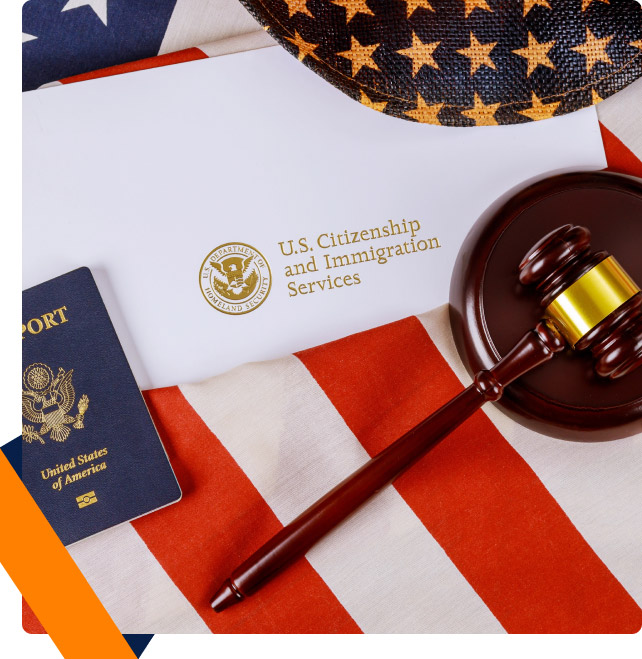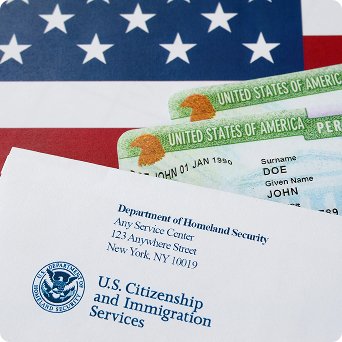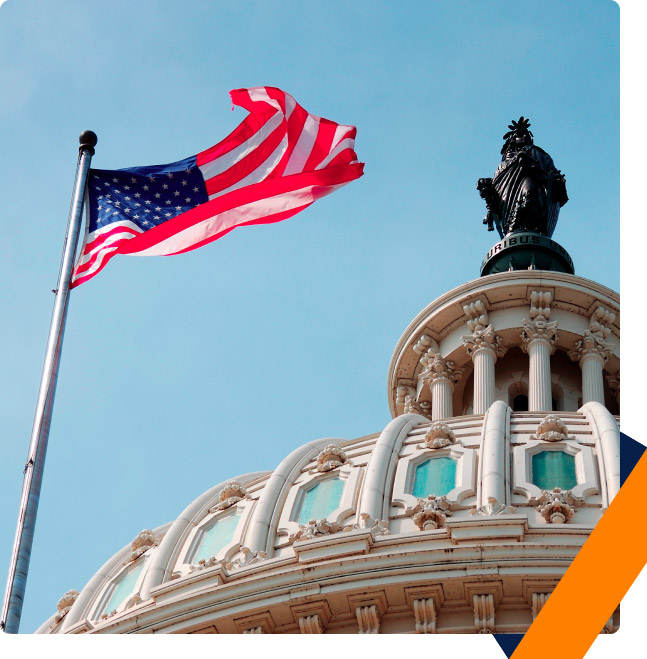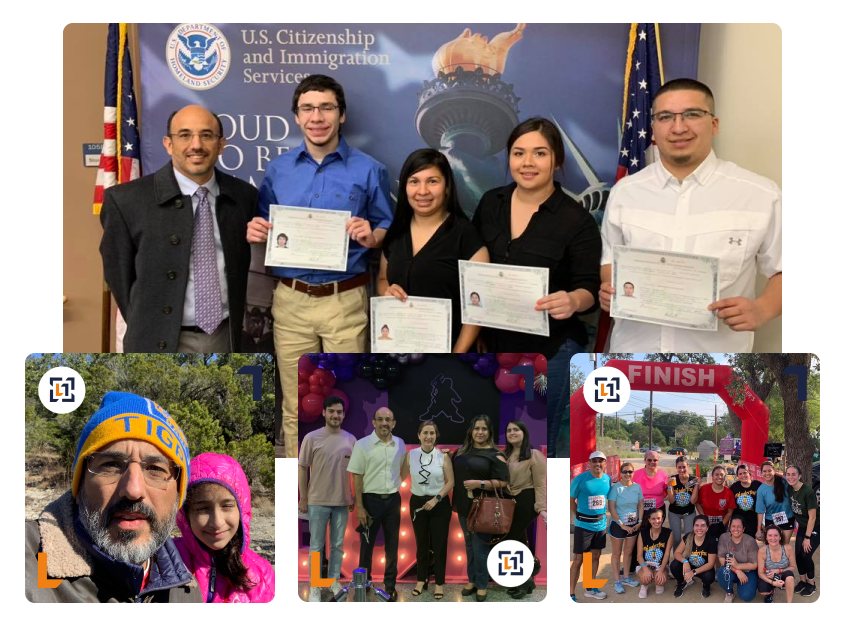Laredo TX Consular Processing Attorney For Green Cards
Embarking on the journey toward U.S. permanent residency is a significant milestone. For many, consular processing serves as the gateway to this new chapter. Understanding this process is vital for a successful application. A Laredo TX Consular Processing Attorney for Green Cards, simplifies the journey and helps achieve lawful permanent residency.
This guide explains the consular processing for Green Card application in Laredo TX. It covers eligibility, petition filing, National Visa Center (NVC) procedures, consular interviews, and potential challenges. It also highlights how Lozano Law Firm can guide families.
Overview Of Green Card Consular Processing
Consular processing is how an individual applies for a Green Card through a consulate or U.S. embassy in their home country. This process is for applicants who reside outside the U.S. or do not qualify for an adjustment of status. They must comply with strict immigration rules, submit accurate documentation, and attend an in-person interview.
Applicants should carefully prepare, follow the process, and submit correct documentation, as minor mistakes can complicate their immigration journey. The U.S. consulate then reviews the case to determine whether the applicant qualifies for an immigrant Visa. So, missing any of the steps can result in delays.
Applicants must meet the eligibility requirements for a consular Green Card. Family relationships, financial sponsorship, and other immigration criteria determine eligibility. They should carefully review the requirements before proceeding.

Family-Based Green Card Eligibility Criteria
U.S. immigration laws permit citizens and lawful permanent residents (LPRs) to sponsor certain family members for Green Cards. Eligibility depends on the sponsor’s immigration status and relationship with the applicant. However, immediate relatives often experience faster processing times than those in preference categories.
Immediate Relatives Of U.S. Citizens
Immediate relatives of U.S. citizens include spouses, unmarried children under 21, and parents of U.S. citizens if the petitioner is at least 21 years old. This category does not have annual Visa limits, meaning applicants typically experience shorter wait times.
Family Preference Categories
Other family members fall under preference categories, which have annual Visa limits. These include:
- Unmarried adult children of U.S. citizens.
- Spouses and unmarried children of lawful permanent residents.
- Married children and siblings of U.S. citizens, if the petitioner is 21 and older.
Immediate relatives have an advantage because there is no cap on the number of Visas available yearly. However, preference categories often involve long waiting periods, as Visas are limited based on country and category. Checking the Visa bulletin can help applicants estimate wait times accurately.
Good Moral Character
Green Card applicants must show good moral character. U.S. immigration law requires individuals seeking permanent residency to have a history of honesty, integrity, and lawful behavior. While no definition of good moral character exists, certain factors can impact an applicant’s eligibility.
Consular officers review an applicant’s background, including criminal history, past immigration violations, and other conduct that may raise concerns about their character. A history of serious offenses or fraudulent activity can lead to denying the Green Card application.
Good moral character is assessed based on an applicant’s past actions. Crimes involving fraud, theft, violence, or substance abuse may raise red flags during the application review. Even minor infractions, such as repeated violations of immigration laws, can impact eligibility.
Some applicants may be required to submit additional evidence of rehabilitation or provide character references to prove they have maintained good moral standing. In cases where an applicant has a past offense, seeking legal guidance can help determine if a waiver is available to overcome this issue.
Affidavit Of Support
Most family-based Green Card applicants must submit the Affidavit of Support. This legally binding contract ensures the immigrant will have financial support in the United States and not depend on government assistance.
The U.S. sponsor must complete Form I-864, demonstrating their financial ability to support the applicant. To qualify, the individual must be at least 18 and meet minimum income requirements based on household size. Most sponsors have an income threshold of 125% of the Federal Poverty Guidelines.
If the sponsor does not meet the income requirement, a joint sponsor can submit an additional Affidavit of Support to meet eligibility criteria. Failure to provide a complete and accurate Affidavit of Support can lead to delays or denials.
The form must include tax returns, pay stubs, or other proof of income. U.S. immigration authorities review these financial documents carefully to ensure the applicant will not become a public charge. A well-prepared Affidavit of Support strengthens the application and improves the chances of approval.
Once the Affidavit of Support is submitted and approved, the next step involves filing the immigrant petition. This petition establishes the qualifying relationship between the sponsor and the applicant, officially beginning the immigration process.
The Process Of Filing The Immigrant Petition
To begin consular processing, a U.S. citizen or lawful permanent resident must file Form I-130, Petition for Alien Relative. This form is submitted to U.S. Citizenship and Immigration Services (USCIS), proving the qualifying family relationship. It is the first step toward obtaining a Green Card.

Purpose Of Form I-130
The I-130 petition establishes a legitimate family relationship between the sponsor and the applicant. USCIS reviews the petition, along with supporting evidence, to confirm eligibility. Processing times vary depending on the USCIS workload, the applicant’s category, and whether additional proof is required.
Petitions delay happens for several reasons, including missing documents, incorrect information, or insufficient proof of relationship. USCIS may request additional evidence, which can extend processing times. Backlogs at immigration offices can also slow down the approval process. It is vital to ensure that documents are complete.
Next Steps After Petition Approval
Once USCIS approves the I-130 petition, it forwards the documents to the National Visa Center. The NVC assigns a case number and provides instructions for the next steps. Applicants must submit fees, complete required forms, and provide additional documents before their interview.
The National Visa Center (NVC) Procedures
The National Visa Center is an intermediary between USCIS and the U.S. consulate where the interview will take place. It collects all necessary documents and fees before scheduling the Visa interview. Timely responses to NVC requests are vital to avoid delays.

The NVC In Consular Processing
After receiving the approved petition, the NVC notified the applicant and sponsor. The NVC requests additional documentation, including civil records, financial evidence, and the online Visa application. The applicant must complete all required steps before the interview.
Required Actions From The Applicant
Applicants must submit all required forms and pay processing fees through the NVC portal. They must also complete Form DS-260, the Online Immigrant Visa Application. Failure to submit accurate information can result in delays. Once everything is submitted, the case moves forward for scheduling.
Processing Timeline & Interview Scheduling
The NVC reviews all submitted documents before scheduling the consular interview. Processing times vary based on the volume of applications and the applicant’s Visa category. Responding quickly to NVC requests can prevent unnecessary delays and help move the case forward efficiently.
Preparation For The Consular Interview
The consular interview is a critical step in the Green Card process. During the interview, an immigration officer evaluates whether the applicant meets all eligibility requirements. A well-prepared applicant can improve their chances of approval by bringing all required documents and answering questions confidently.
Purpose Of The Interview
The consular interview aims to confirm the applicant’s eligibility and intentions. The officer may ask about the family relationship, past immigration history, and plans in the United States. If everything checks out, the Visa is approved, and the applicant can immigrate.
Documents To Bring
Applicants must bring a valid passport, a Visa appointment letter, medical examination results, and financial support documents. The Affidavit of Support is required to show that the applicant will not become a financial burden on the U.S. government. All paperwork should be organized and updated.
Common Interview Questions
The officer may ask questions about how the applicant met their sponsor, family background, and plans. Additional evidence may be requested if there are any inconsistencies in the application. Applicants should answer honestly and provide clear, concise responses.
However, knowing the challenges ahead forewarns applicants and helps them find options to overcome these hurdles.

Consular Processing For Green Card Application Strategies
Consular processing can be challenging for some applicants. Understanding potential issues and how to address them can help prevent delays. Proper preparation and legal guidance from a Green Card lawyer in Laredo, Texas, can make a significant difference in ensuring a successful outcome.
Checking Documents’ Accuracy
Missing or incorrect documents are among the most common reasons for delays. The consulate may request additional paperwork before approving the Visa. Applicants should double-check all required documents before their interview to avoid setbacks in the processing timeline.
Filing Waiver For Inadmissibility Issues
Certain factors may make an applicant inadmissible, including medical conditions, criminal history, or past immigration violations. In some cases, a waiver may be available. If an applicant believes they may be inadmissible, seeking guidance can help determine the right course.
Check The Consulate’s Website For Updates
Some cases require additional administrative processing, which can extend wait times. Background checks or missing information may cause delays. Applicants should check the consulate’s website for updates and respond promptly to additional documents or information requests.
Getting the support from a Green Card law firm in Laredo, Texas, gives applicants more chances of successful outcomes. Legal representation simplifies the process, leading to the achievement of immigration goals.
Help With Consular Processing For Green Card Application In Laredo TX
At Lozano Law Firm, we understand how necessary family-based immigration is. We help clients successfully navigate the consular processing journey. Our team is committed to making the process as smooth as possible by providing accurate guidance and personalized support.
We assist with preparing and submitting I-130 petitions, ensuring all documents are complete, and helping clients get ready for their interviews. If challenges arise, we address legal issues such as inadmissibility waivers or additional evidence requests. Our team works hard to reunite families in the U.S.
Consular processing is required for Green Card applicants outside the U.S. Understanding eligibility, preparing the necessary documents, and attending the consular interview are key steps. Careful planning and legal assistance can help applicants avoid delays and increase their chances of approval.
Legal support can simplify the process and reduce stress. Lozano Law Firm provides skilled guidance for consular processing cases. Contact us today to take the next step with confidence. Our experienced team is ready to assist with every stage of the process.

Real Clients, Real Testimonials
-
Israel Google Client Review
I had an excellent experience with lazano Law Firm The team was professional, knowledgeable, and incredibly supportive throughout my immigration process. They took the time to explain every step, answered all my questions promptly, and made a stressful situation much easier to manage. I truly felt they cared about my case and worked hard to ensure everything was done properly and efficiently. I highly recommend them to anyone needing immigration assistance. Thank you for your outstanding service!
Read more -
Clarissa Gaytan Google Client Review
This team was excellent to us, they are very prompt and organized. If we were missing something they would notify us that same day. If I had questions they would reply quickly to all my emails. All around very helpful and professional group.
Read more -
Felix Sanchez Google Client Review
As I've worked with lozano law firm they been sooo much help guiding us helping us understand from sheila from maribel from ms gloria and josue they been sooo much help helpful so dedicated to help me and my family to reunite thank u guys from the bottom of my heart.
Read more -
Kara Wilson Google Client Review
Absolutely fantastic! I could not have asked for a better experience. Mr. Lozano was incredibly competent, kind, supportive and professional. He went above and beyond to understand our case and help us. I highly recommend him!
Read more -
Victor Ramirez Google Client Review
Lozano Law firm Made the process to adjust immigration status so easy. They walked us through everything and Made sure we had all the requirements and were well prepared for the interview. They helped us to have a quick smooth process
Read more -
Uliks Sula Google Client Review
I want to say thank you to lozano office and for sure to the amazing crew they have becouse they are very helpful full and educated on them job so I would say to any one is not point to shop around even because the money because they are the best they would be there for you like how they are for me they care that is the most important for me thank you again 0/10 I would say easy 300% recommend . 😀😀😀
Read more -
Anneke Raaths Google Client Review
The Lozano Law Firm is a great resource for anyone with immigration needs. They were professional, quick, and VERY helpful in guiding me through the process. I really appreciated their ability to send documents through email--safely and securely.
They were great in keeping me updated on any new developments in my immigration case and provided me with help during the more stressful times. I would definitely recommend them and will be using their services again!!
Read more
Contact Our Immigration Lawyer
Contact Us Today For A Free Case Evaluation!
We respect your privacy. The information you provide will be used to answer your question or to schedule and appointment if requested.



